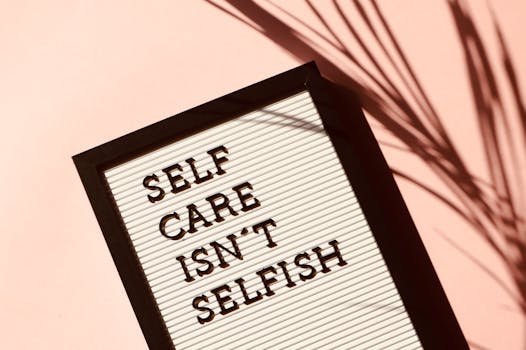Mental health is just as important as physical health, yet it is often overlooked in our busy lives.
Fortunately, improving mental health doesn’t have to be complicated.
By adopting simple daily habits, you can nurture your mind, reduce stress, and build emotional resilience.
Here are 10 easy habits to incorporate into your daily routine to boost mental well-being.
1. Practice Mindful Breathing
Mindful breathing is one of the simplest yet most effective ways to reduce stress and anxiety.
Take a few moments each day to focus on your breath, inhaling deeply and exhaling slowly.
This can help calm your mind, lower your heart rate, and increase mental clarity.
Quick Tip: Set a 5-minute timer each morning or before bed to practice deep breathing or try box breathing (inhale for 4 counts, hold for 4, exhale for 4).
2. Get Regular Exercise
Exercise isn’t just for physical health—it’s a powerful tool for mental wellness too.
Regular physical activity releases endorphins, the body’s natural mood lifters, and can reduce symptoms of anxiety and depression.
Suggestions: Try walking, yoga, or cycling for at least 30 minutes a day. Even a brisk walk can significantly improve your mood.
3. Maintain a Balanced Diet
What you eat affects your brain function. Consuming a balanced diet rich in fruits, vegetables, lean proteins, and whole grains can stabilize mood, improve concentration, and help you feel energized throughout the day.
Mental Health Superfoods: Include omega-3-rich foods like salmon, flaxseeds, and walnuts, which are linked to improved brain health.
4. Prioritize Sleep
Sleep is crucial for mental health. Lack of sleep can increase irritability, and stress, and negatively impact cognitive function.
Strive to get 7-9 hours of quality sleep each night by maintaining a consistent bedtime routine.
Pro Tip: Avoid screens at least 30 minutes before bed, and create a calm sleep environment with dim lighting and minimal noise.
5. Stay Connected with Loved Ones
Maintaining strong social connections is essential for emotional well-being.
Spend time with family and friends, talk about your feelings, and lean on your support network when needed.
Positive relationships can help reduce feelings of loneliness and improve your mood.
Actionable Step: Schedule regular catch-ups with a friend or family member, even if it’s just a phone call or video chat.
6. Set Small, Achievable Goals
Setting daily or weekly goals can give you a sense of accomplishment and purpose, which boosts self-esteem.
Start with simple tasks, such as decluttering a room, completing a work task, or even learning a new hobby.
Tip: Break larger goals into smaller, manageable steps, and celebrate each achievement, no matter how small.
7. Limit Screen Time
Spending too much time on social media or watching the news can increase anxiety and stress.
While it’s essential to stay informed, it’s equally important to limit exposure to negative content and digital distractions.
Try This: Set specific times to check your phone and avoid mindlessly scrolling by setting app limits or scheduling tech-free hours.
8. Practice Gratitude
Focusing on what you’re grateful for can shift your mindset from negative to positive.
Keeping a daily gratitude journal is a great way to remind yourself of the good things in life and foster a more optimistic outlook.
How to Start: Each night, write down three things you’re thankful for. These can be as simple as a good meal or a kind gesture from someone.
9. Engage in Creative Activities
Expressing yourself creatively can reduce stress and improve mood.
Whether it’s drawing, painting, writing, or playing a musical instrument, creative outlets provide a way to process emotions and take your mind off daily stressors.
Ideas: Set aside 20 minutes a day for a creative hobby or try adult coloring books for a simple yet relaxing activity.
10. Practice Self-Compassion
It’s easy to be hard on yourself, especially when things go wrong.
However, practicing self-compassion can boost mental health by reducing self-criticism and fostering a sense of self-worth.
Self-Compassion Exercise: Whenever you notice self-critical thoughts, pause and ask yourself what you would say to a friend in the same situation. Offer yourself the same kindness and understanding.
Incorporating these simple habits into your daily routine can greatly improve your mental health over time.
Start with just one or two habits and gradually build from there.
Remember, taking care of your mental health is a continuous process, and small steps can make a significant difference.
By prioritizing mental well-being, you can reduce stress, boost your mood, and build resilience in the face of life’s challenges.
